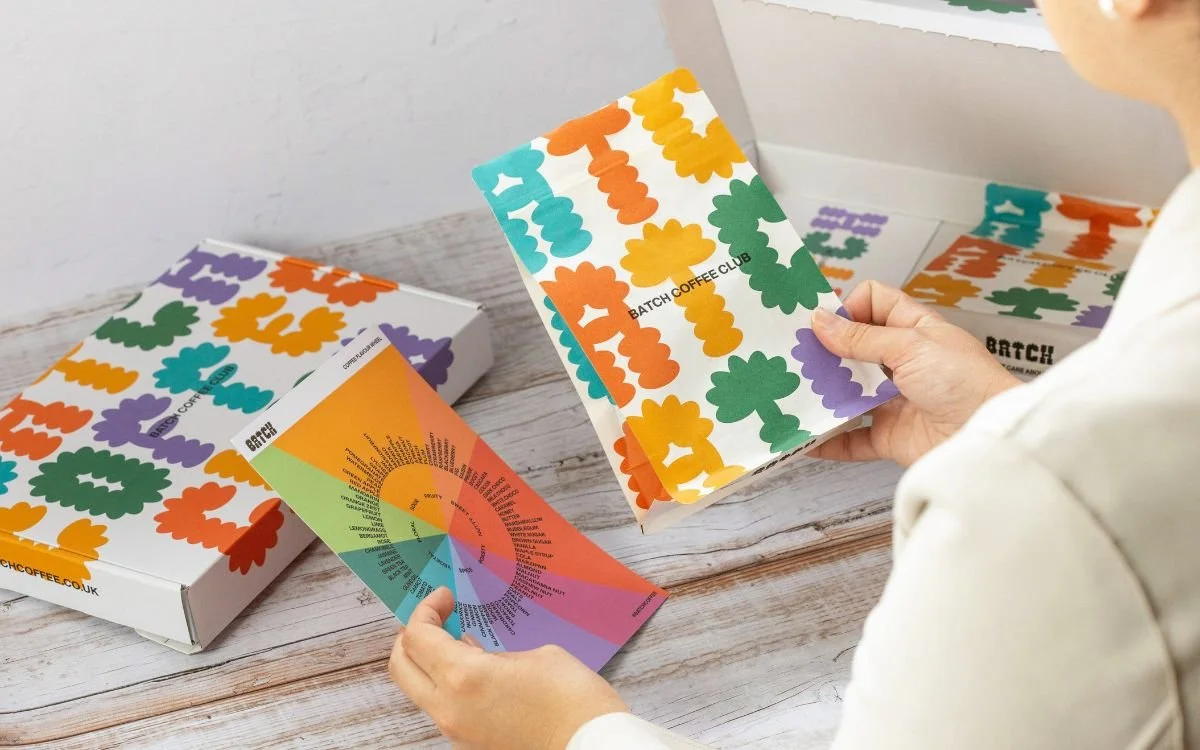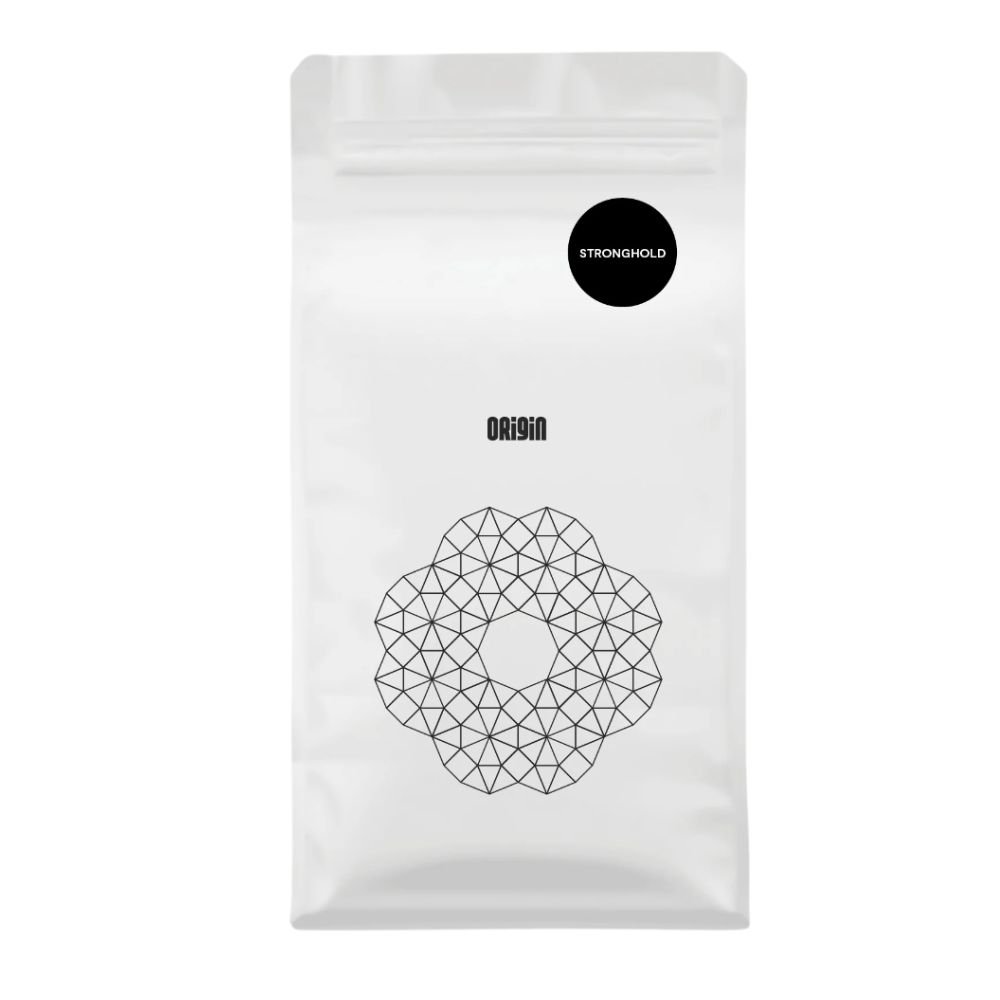Ethiopian Coffee: A Journey Through Coffee's Birthplace
The motherland of this sacred bean.
If you are slowly being introduced to the world of specialty coffee, those from the region of Ethiopia are not to be missed.
Coffee grown here has a very distinct flavour profile, one you might not even traditionally associate with coffee.
Can you believe natural coffee can taste fruity, sweet and juicy, or tart but deep, like berries?
Read on to find out why Ethiopia is seen as, not only as the birthplace of coffee, but also a very sought after specialty coffee origin.
UK’s Number 1 Coffee Club
Use Code “YIRGACHEFFE”
For 50% Off Your First Subscription Box
With a lot of flavoured coffees in the market, specialty coffee might seem offensively expensive.
Learning more about how a bean develops its flavours will show just how Ethiopian coffee is valuable, being one of the most mindfully grown crops of the area.
What is Ethiopian Coffee?
As a background, the coffee plant and the resulting bean, is influenced by the soil composition, elevation, and humidity of its location.
Ethiopia’s coffee farms are mostly in very high altitudes--from 1,400 to 2,000 meters above sea level.
Ethiopian Coffee Farming. Photo: Atlas Coffee Club
The main benefits of this height is that the cool climate slows down the growth of the bean, leading to the development of more complex flavours.
More acidic notes can be found in coffee coming from high altitudes, resulting in Ethiopian coffee being well-known for coffee tasting sweet but tart like berries, or tangy like tangerines.
Ethiopian coffee farmers also know how to use the protection of the forest to their advantage.
Since coffee is sensitive to too much direct sunlight, but thrives in a humid tropical climate, coffee farmers plant under the natural canopy of the forest, or in their own gardens near their home.
Home Grown Ethiopian Coffee. Photo: IDE Global
Growing in the shade allows for more flavour nuances to develop in the resulting bean.
How did the Ethiopians figure out the best way to grow coffee beans then?
What Makes Ethiopian Coffee's Flavour Profile So Distinctive?
Ethiopian coffee's remarkable taste profile stems from an extraordinary combination of natural advantages and traditional farming practises.
The country's high-altitude growing regions, situated between 1,400 and 2,000 metres above sea level, create perfect conditions for slow bean development.
This unhurried growth in cool mountain air allows coffee cherries to develop intricate sugar compounds and organic acids that contribute to their celebrated flavour complexity.
The true distinction of Ethiopian coffee lies in its genetic diversity. Whilst most coffee-growing regions rely on a handful of cultivated varieties, Ethiopia houses thousands of uncategorised heirloom varieties growing wild in their natural habitat. These indigenous varieties, alongside traditional shade-growing practises beneath forest canopies, yield flavours unmatched anywhere else in the coffee world.
From the bright, floral notes of Yirgacheffe to the wild, berry-like qualities of naturally processed Sidamo, Ethiopian coffee offers taste experiences that challenge conventional notions of coffee's potential.
The Best Ethiopian Coffee.
Ethiopian coffee is extremely popular in the speciality coffee scene.
The consistent quality and the contrast in flavour profiles is almost unrivalled.
You will be able to find an Ethiopian coffee in the majority of speciality coffee roasters depending on the season and the roasters menu.
Here at Batch coffee we pride ourselves on showcasing some the some of the best independent coffee roasters in the UK and their seasonal single origin coffees beans from around the world in our subscription box.
We are a team of coffee professionals that have worked in the industry all around the world.
Our reviews are all our own words and we only recommend products or services that we love.
Here are a couple of our favourite coffee roasters that have fantastic seasonal coffee menus including some of the best Ethiopian coffee beans:
Batch Coffee - Recent Ethiopian Features
Assembly are the quality and customer focused coffee roaster based in Brixton, London.
They are one of the few coffee roasters in the UK that are pushing the boundaries of each aspect of their business.
Checkout our full Review of Assembly Coffee Roasters Here, or.
Volcano consistently produce some of the best coffee available in the UK at such a high volume.
Their seasonal menu will entice newbie coffee drinkers through to seasoned coffee slurpers.
Check out the full Review of Volcano Coffee Works Here, or
Origin coffee was founded over 15 years ago by Tom Sobey and roast their coffee in Cornwall.
They are one of the founding fathers of third wave speciality coffee in the UK and are amongst the front runners in the industry.
Read the full Origin Coffee Review.
If Carnival Coffee sound like the ground coffee for you Visit Origin’s Online Shop Here.
Is It True That Ethiopia Is The Birthplace Of Coffee?
There is a popular story that tells of a goatherd discovering his flock of goats jumping all around a certain bush.
Realizing that his goats had been chewing on the red cherries from the bush, he tried them too, and inadvertently discovered the caffeine content in the coffee bean.
The tale expands further, and so does the cultivation of coffee as well as coffee culture. Coffee mainly only grows wild in Ethiopia, and has spread eastward due to trade with the Arabian peninsula, and eventually, even further to Europe.
What is an Ethiopian Coffee Ceremony?
Ethiopia also has its own particular customs regarding coffee brewing.
Any Ethiopian home has a jebena, or a tall clay coffee pot, almost resembling a pitcher. In various levels of ceremony, Ethiopian coffee beans are roasted in a pan, ground by mortar and pestle, and then boiled with water in the jebena.
This is traditionally the way Ethiopians drink their coffee, in a few rounds, with the drink varying in strength.
Coffee drinking is inevitably a communal activity, and this local culture has also lent itself to other regions where coffee cultivation has spread.
Ethiopian Coffee Farming Today
Today, Ethiopian coffee origins have big fans in the international market, and still is the country’s biggest export.
With its coffee industry dating a few centuries, Ethiopia has found the best way to process their coffee cherries, perfecting their art to highlight the distinct notes of their crop.
Processing affects the resulting flavour of Ethiopian coffee beans, and coffee farmers have the advantage of knowing how to process their harvest.
Coffee cherries are picked at the optimal ripeness, and then either dried, or washed, de-pulped and dried, to reveal the green bean that is eventually roasted.
Local cooperatives and unions know the International demand for that district Ethiopian taste, and take pride in their quality control.
Yirgacheffe is probably one of the more famous regions in Ethiopia for specialty coffee.
In the 1970’s, Yirgacheffe was the first wet-process mill that was built. Instead of drying the coffee cherries to remove the meat, they were soaked in large vats until only the green bean was left.
Learn how to make cold brew at home with 4 methods.
What made this process unique was that it used so much water something that was not in abundance in the region.
The citrus flavours and floral notes were enhanced by the washing process. Also because of this processing, farmers and traders branded this coffee product as somewhat of a luxury, specialty export.
Not all other regions in Ethiopia process their harvest using the wet-mill.
You have the Harrar region tis notable for the chocolatey and spicy notes it carries. This is due to natural processing, where the coffee cherries are allowed to dry and the skin and meat adhere to the green bean.
This results in complex and rich flavours, in contrast to the bright acidity of the Yirgacheffe region. Does that mean Ethiopian coffee is highly acidic? Ethiopian beans actually only have a mild acidity, but tastes bright and light on the palate.
Ethiopian coffee is a great starting point when your are new to specialty coffee beans.
They have a distinct taste that is different from the regular cup, and the coffee origin is famous and easy to find. The best way to try it is to find a reputable trader and roaster who knows how to further enhance the natural flavors of the beans.
Not all Ethiopian-branded coffees are the same, and not all will taste surprising, so it is best to look for those coming from small farms where traceability is key.
Is Ethiopian Coffee Strong?
Strength in specialty coffee is a little bit of a buzzword. Although one may perceive strength as harsh flavours that are attributed to particular elements of certain drinks such as alcohol in alcoholic drinks.
The caffeine element in coffee stays pretty much the same whether the coffee’s flavours are perceived as strong (usually bitter).
That said. You may have a strong tasting Ethiopian coffee, depending on the varietal, processing method and roast profile but generally speaking Ethiopian coffee is not seen as strong.
Does Ethiopian Coffee Have More Caffeine?
Caffeine content is hard to measure as it depends on the varietal of coffee, the region and other factors like altitude.
Ethiopian coffee from Harrar on average has 1.13% caffeine compared to Yemanese coffee from Mocha which has 1.03% and Tanzanian peaberry coffee beans which has 1.42% caffeine.
Is Ethiopian Coffee Arabica Or Robusta?
Ethiopian coffee is mainly Arabica coffee with a very small amount of Robusta being produced.
Is Ethiopian Coffee Acidic?
Ethiopian coffee can be acidic and sharp. However this may not always be the case. It depends on the varietal, the processing method and the roast profile.
Acidity in coffee can be a wonderful thing. When balanced with sweetness and body, the right amount of acidity can produce delicious notes of citrus fruits.
What Makes Ethiopian Coffee Different?
One thing that really sets Ethiopian coffee aside from many other origins is the unique varietals of coffee you can find here usually called Heirloom.
These are a particular type of coffee plant that is only specific to a certain region or even farm in Ethiopia. They can add some incredible flavour notes to the cup and the fact that they are unique is a huge selling point in the speciality coffee industry.
How Best to Select and Brew Ethiopian Coffee to Get the Best Results?
Choosing and brewing Ethiopian coffee requires particular attention to detail to fully appreciate its distinctive qualities.
The first consideration is freshness - Ethiopian coffee, especially from speciality roasters, should ideally be consumed within a month of its roasting date.
When selecting beans, pay attention to the processing method listed on the package, as this significantly influences the flavour profile.
Natural processed Ethiopian coffees tend to offer more pronounced fruit notes, whilst washed coffees typically present cleaner, more floral characteristics.
For brewing, Ethiopian coffees truly shine when prepared as filter coffee, whether through a V60, Chemex, or quality batch brewer.
These methods help highlight the delicate floral notes and complex fruit characteristics that make Ethiopian coffee so sought after.
The water temperature should be slightly lower than one might use for other origins - around 92-94°C rather than 96°C - to avoid overwhelming the subtle flavour notes.
When it comes to grinding, opt for a medium-fine consistency for filter methods, similar to caster sugar. Too fine a grind can emphasise bitter notes, whilst too coarse a grind might result in under-extraction and fail to draw out the coffee's natural sweetness.
If you're buying pre-ground coffee, mention that you're brewing filter coffee to ensure the correct grind size.
Storage is equally crucial - keep your Ethiopian beans in an airtight container away from direct sunlight, and avoid storing them in the fridge or freezer unless properly vacuum-sealed.
The high altitude growing conditions of Ethiopian coffee result in particularly dense beans, which means they can maintain their quality longer than many other origins, but proper storage remains essential to preserve their distinctive characteristics.
For those new to Ethiopian coffee, start with beans from the Yirgacheffe region, as these tend to be the most approachable whilst still offering those characteristic Ethiopian flavour notes.
As you develop your palate, explore natural processed coffees from Sidamo or Guji for more adventurous fruit-forward profiles. Remember that Ethiopian coffees often taste best black, as milk can mask their complex flavour profiles




























